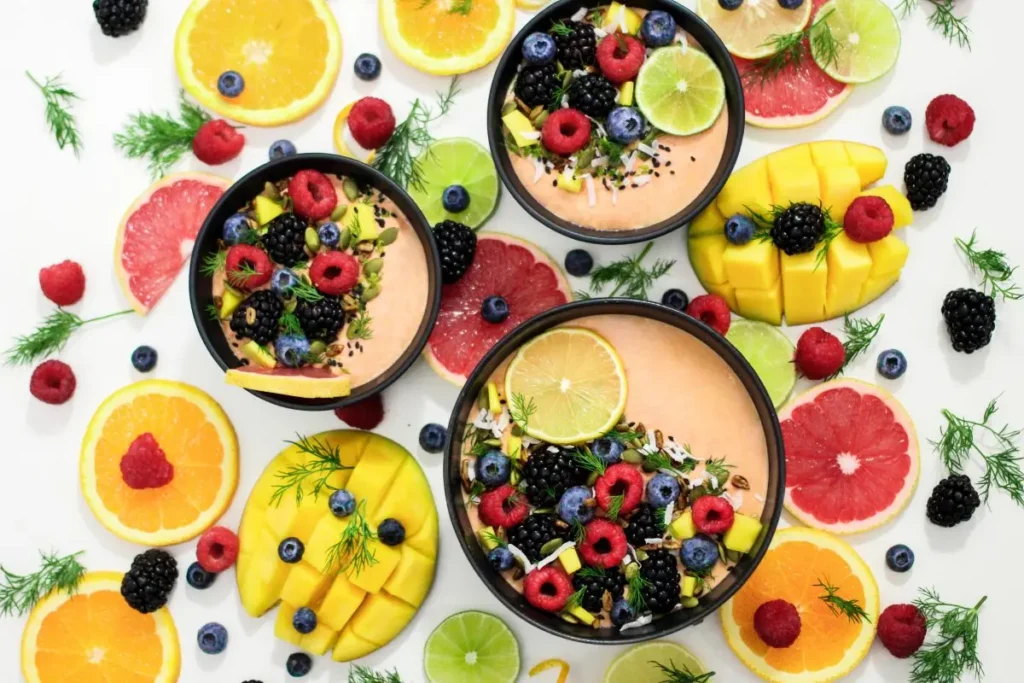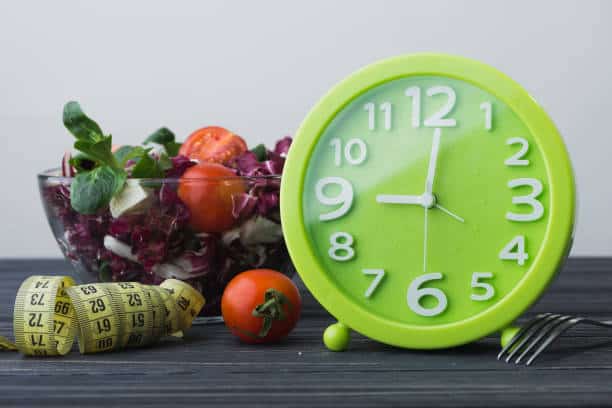Introduction
This introduction is about What Can You Eat or Drink While Intermittent Fasting?Irregular, or sporadic, fasting has become increasingly popular as a healthy way to lose weight and improve everyday well-being. This method continues the cycle of fasting and eating. During a period of intermittent fasting, you are free to consume whatever you desire, but you should make an effort not to consume any calories. We will tell you how to best incorporate a few food and beverage options that are excellent for irregular fasting into your schedule in this article.

What Can You Eat or Drink While Intermittent Fasting?
What Can You Eat or Drink While Intermittent Fasting? During the fasting window, intermittent fasting or discontinuous fasting takes into account the consumption of specific food and beverages. It is essential to select foods that are low in calories and won’t disturb the fasting state because the primary objective of fasting is to limit calorie intake. We ought to look into a few reasonable choices.
Water
Water is an essential component of any fasting regimen. In addition to helping you stay hydrated, it also helps with processing and detoxification. Drinking water is strongly recommended during irregular fasting and should be done consistently to promote general prosperity.
Black Coffee
Dark Caffeine Choosing between dark espresso or black coffee while intermittent fasting is an excellent choice. It has few calories and can be used to check for hunger during fasting. Dark coffee is a great way to start your day because it contains caffeine, which can also give you a boost of energy.
Herbal Tea
Herbal Drink During irregular fasting, herbal and home-grown teas like chamomile, peppermint, and green tea can be consumed. These calorie-free teas can be a relaxing and enjoyable addition to your fasting schedule. Be wary of aged teas that might have extra calories or sugar in them.
Apple Cider Vinegar
Vinegar from apple cider Vinegar made from apple juice has been linked to a variety of health benefits, including facilitating digestion and regulating glucose levels. It is generally acceptable to consume a small amount of weak apple juice vinegar while fasting. Nevertheless, before incorporating it into your regular practice, it is prudent to consult a medical professional.
Bone Broth
Bone stock has a few medical benefits in addition to its abundance of supplements. It can be consumed during a fast and has very few calories. Bone stock contains collagen and amino acids that can support stomach health and reduce food cravings. In the event that you want to study What Might You at any point Eat or Drink While Irregular Fasting?
Fruits and Vegetables
Certain leafy foods can be devoured while irregular fasting, as they are low in calories and high in fiber. Models incorporate mixed greens, cucumber, celery, and berries. These choices can give fundamental supplements and add to a balanced fasting diet. If you wanna learn more about What Can You Eat or Drink While Intermittent Fasting?
Nuts and Seeds
Nuts and seeds, like almonds, pecans, chia seeds, and flaxseeds, can be consumed with some restraint during irregular fasting. They are an extraordinary wellspring of solid fats and can assist with advancing satiety. I trust now you comprehend What Might You at any point Eat or Drink While Discontinuous Fasting?
Intermittent Fasting Supplements
While not in fact food or drink, irregular fasting enhancements can be helpful in supporting your fasting schedule. These enhancements are intended to give fundamental nutrients, minerals, and electrolytes that might be missing during times of fasting. It is prudent to talk with a medical care proficient or enrolled dietitian prior to integrating any enhancements into your fasting routine. If you Like this Blog ( What Can You Eat or Drink While Intermittent Fasting?) you also like Below blog too:

Incorporating Intermittent Fasting into Your Routine
Now that we have discussed the various foods and beverages that can be consumed while intermittent fasting, let’s delve into some practical tips on incorporating this eating pattern into your daily routine.
Start Slowly
Assuming that you are new to discontinuous fasting, it is prescribed to begin gradually and steadily increment your fasting window. Start by fasting for 12-14 hours short-term and steadily broaden the fasting time frame as your body adjusts. This permits your body to conform to the new eating design all the more serenely.
Plan Your Eating Window
To guarantee an effective fasting experience, it is vital for plan your eating window decisively. Consider your way of life and everyday exercises while deciding the best chance to eat. Certain individuals like to have their eating window in the first part of the day, while others find it more helpful to eat later in the day. Pick a timetable that turns out best for yourself and stick to it reliably.
Stay Hydrated
Proper hydration is crucial during fasting periods. Hydrate over the course of the day to forestall drying out.You can also include herbal teas or infused water to add flavor and variety to your hydration routine. I add one more thing About (What Can You Eat or Drink While Intermittent Fasting?) is you can Drink Water After Fasting.
Listen to Your Body
While discontinuous fasting can be a useful asset for weight reduction and by and large wellbeing, it is critical to pay attention to your body’s signs. Assuming you feel unnecessarily exhausted, woozy, or unwell during fasting,it could be a sign that the fasting window is exorbitantly extended for you. It is principal to properly zero in on your thriving and change your fasting schedule.
Focus on Nutrient-Dense Foods
Make sure to choose foods high in nutrients first when it’s time to eat during your eating window. To ensure that you get the necessary vitamins, minerals, and antioxidants, make sure to include a variety of fruits, vegetables, lean proteins, and whole grains in your meals. During the eating window, a well-balanced diet will complement the advantages of intermittent fasting and support overall health.
Seek Professional Guidance
Before beginning an intermittent fasting journey, it is advisable to seek guidance from a healthcare professional or registered dietitian if you have any underlying health conditions or concerns. They can offer you advice that is tailored to your particular requirements and assist you in overcoming any potential obstacles. Now you Understand What Can You Eat or Drink While Intermittent Fasting?
Conclusion
This Conclusion is About What Can You Eat or Drink While Intermittent Fasting? Intermittent fasting offers a flexible approach to weight management and improved health. While fasting, it is crucial to select foods and beverages that are low in calories and won’t disrupt the fasting state. Water, black coffee, herbal tea, apple cider vinegar, bone broth, fruits, vegetables, nuts, seeds, and intermittent fasting supplements are all viable options to incorporate into your fasting routine. Remember to listen to your body and consult with a healthcare professional or registered dietitian before making any significant changes to your diet or fasting regimen.
Frequently Asked Questions (FAQs)
Q: Can I drink milk or cream during intermittent fasting?
A: No, milk or cream contains calories and can break your fast. Stick to black coffee or herbal tea instead.
Q: Can I consume artificial sweeteners while fasting?
A: It is best to avoid artificial sweeteners during fasting, as they can trigger an insulin response and potentially disrupt the fasting state.
Q: Can I have lemon water while fasting?
A: Yes, lemon water is generally considered acceptable while fasting, as it contains minimal calories. However, it is important to avoid adding sweeteners or large amounts of lemon juice.
Q: Can I consume alcohol while intermittent fasting?
A: It is advisable to avoid alcohol during the fasting period, as it contains calories and can interfere with the fasting state.
Q: Can I have diet soda or carbonated drinks while fasting?
A: Diet soda and carbonated drinks should be avoided while fasting, as they often contain artificial sweeteners and can trigger an insulin response.
Q: Can I use olive oil or coconut oil in my fasting routine?
A: It is best to avoid consuming oils during the fasting period, as they are high in calories and can break the fast. Save them for your eating window.

